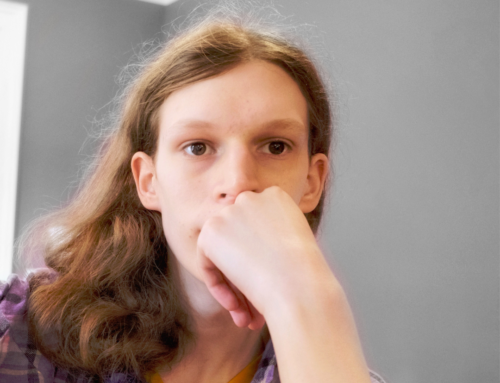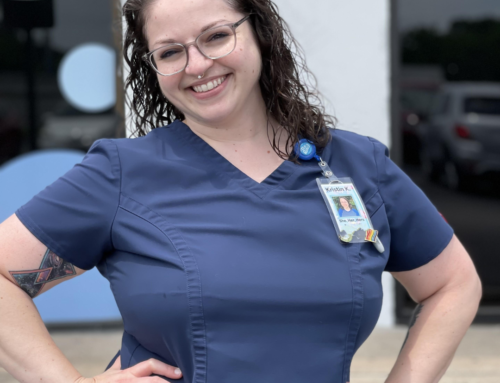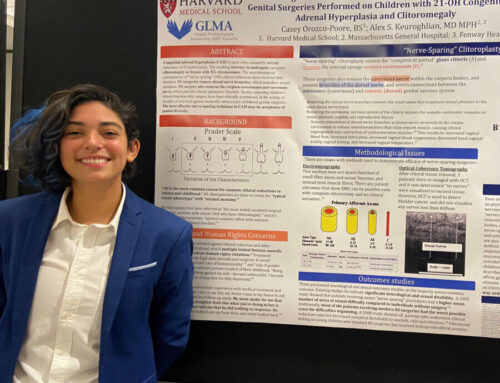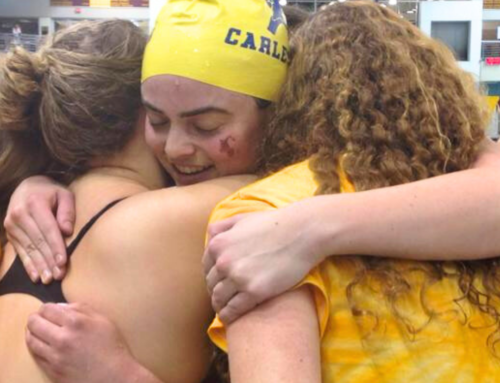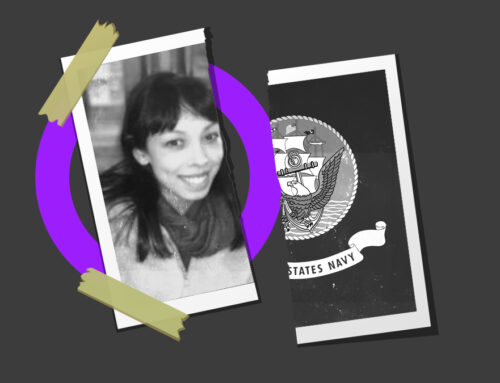We’re grateful for the MDs working every day for intersex bodily autonomy. Here’s 9 who give us hope.
By Hans Lindahl
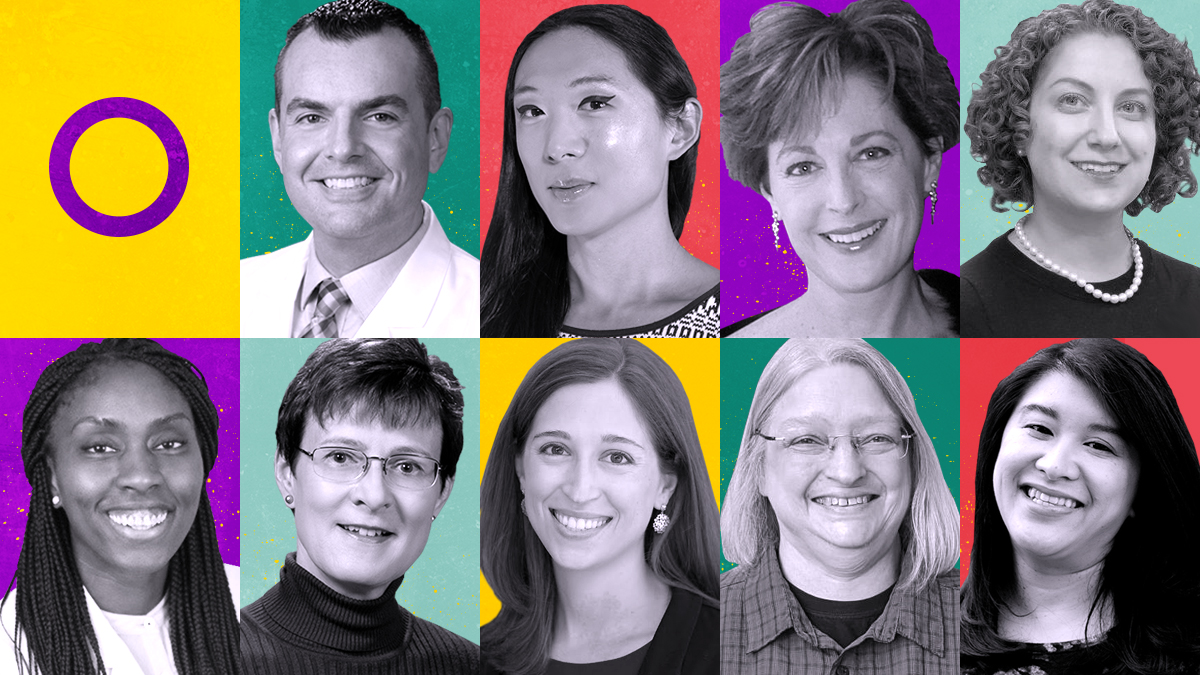
Too many members of intersex communities are survivors of medical harm. Many endure the effects of infant genital surgeries that changed their lives before they were old enough to speak. Some intersex adults grow up to fear and distrust all healthcare interactions because of these experiences. This pain is real, and a central focus of interACT’s work. We also know that there are doctors dedicated to working beside us for change.
interACT works tirelessly to support physicians who push back against harmful medical practices. There are doctors out there who want to listen, and who do empower intersex people to make their own choices about their bodies. Here are some of their stories.
Dr. Ilene Wong, Voice of Conscience
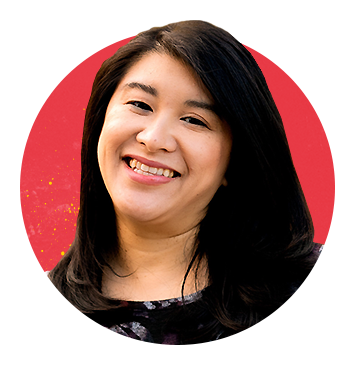 Dr. Ilene Wong (she/her), a urologist, stands out in so many ways. How many surgeons recognize a mistake and apologize, unprompted? How many of those do so publicly? In the national media?
Dr. Ilene Wong (she/her), a urologist, stands out in so many ways. How many surgeons recognize a mistake and apologize, unprompted? How many of those do so publicly? In the national media?
After performing a surgery to remove a teenage girl’s internal testes while in residency, Dr. Wong didn’t feel quite right. She couldn’t stop thinking about how little her patient had been told about her body, and about the serious effects of such a surgery. (Most of all, becoming menopausal and needing lifelong external hormone replacement therapy.) Dr. Wong had followed her profession’s standards of care. The standards were wrong.
Dr. Wong, who is now an interACT Board member, created a video with Human Rights Watch explaining the issue. She’s been closely involved with the cause ever since that operation. When LGBTQIA+ and human rights advocates went up against the California Medical Association to support legislation protecting an intersex person’s right to their own medical decisions, Dr. Wong was one of the first to hop on a plane. Her time as an expert educating members of the California state senate helped to dispel misinformation about the necessity of childhood genital surgeries.
While she’s a urologist and advocate by day, Dr. Wong lives a double life as a young adult author by night. Her first novel, None of the Above, tells the story of an intersex teen learning the truth about her body. The book introduced thousands of young readers—among them plenty of future physicians—to the harms done to intersex people by outdated medical practices.
“Words matter. The language that doctors use when they frame difficult decisions can reinforce intersex stigma and fear. I also wish others in medicine knew how much influence they can wield as advocates for their patients.”
Dr. Arlene Baratz, Champion for Community Research
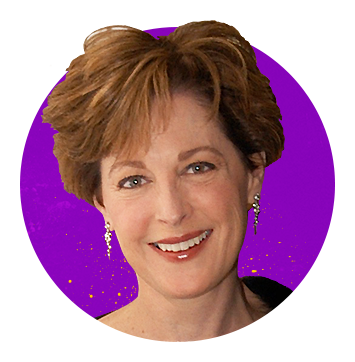 Dr. Arlene Baratz (she/her) is a breast radiologist and founding board member of interACT. Her leadership as a medical ally in the U.S. intersex movement spans more than 20 years. For Dr. Baratz, it’s personal: she is also the mother of two intersex children.
Dr. Arlene Baratz (she/her) is a breast radiologist and founding board member of interACT. Her leadership as a medical ally in the U.S. intersex movement spans more than 20 years. For Dr. Baratz, it’s personal: she is also the mother of two intersex children.
Dr. Baratz chairs interACT’s Medical and Research Policy Committee. She plays a pivotal role in intersex research in the United States, most recently as a co-author of 2020’s groundbreaking study of intersex adults’ health outcomes. As co-author or consultant for numerous studies, Dr. Baratz is an unwavering voice for community ownership. She’s usually the one asking: “were intersex people involved from the beginning?”
Support is central to Dr. Baratz’s philosophy. She also serves as Coordinator of Medical and Research Affairs at interConnect, the largest U.S. intersex support group, where she has advised countless intersex people and those who love them. Dr. Baratz designs CME (Continuing Medical Education) programs that bring intersex community members and providers together. She has been a pillar in our community, and an incredible influence in bringing others in the medical community on board with bodily autonomy.
“I wish clinicians knew that people with variations of sex development and their families can live happy, healthy lives without early surgery. As someone with decades of experience serving this population, I know the power of community and psychosocial support as primary interventions.”
Dr. Katharine Baratz Dalke, Intersex Policy Advisor
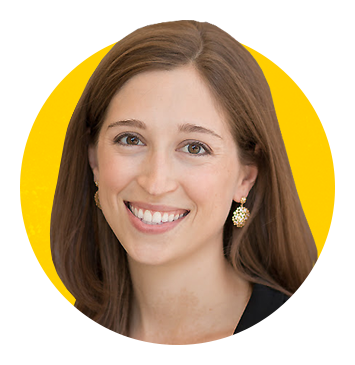 Dr. Katharine Baratz Dalke (she/her), daughter of Dr. Arlene Baratz, proves that advocacy runs in the family. Dr. Baratz Dalke brings her own experience as an intersex person to her work as an Assistant Professor of Psychiatry and Behavioral Health.
Dr. Katharine Baratz Dalke (she/her), daughter of Dr. Arlene Baratz, proves that advocacy runs in the family. Dr. Baratz Dalke brings her own experience as an intersex person to her work as an Assistant Professor of Psychiatry and Behavioral Health.
As a young advocate, Dr. Baratz Dalke was one of the earliest intersex faces to appear on national television, sharing her story with Oprah in 2007 alongside fellow advocates Hida Viloria and Lynnell Stephani Long. Her vulnerability paved the way for countless others in interACT’s Youth program.
Today, Dr. Baratz Dalke is passionate about providing quality clinical care to intersex and LGBTQ people. She serves as the only openly intersex member of the Pennsylvania Commission on LGBTQ Affairs, advising state officials on LGBTQI issues. Dr. Baratz Dalke shares her expertise via an online course on supporting intersex patients that she created for fellow providers. (Proceeds support interACT, and the course gives providers 1.5 CME credits.)
Dr. Baratz Dalke serves as a member of the Working Group for the Sex and Gender Minority Research Office at the National Institute of Health, and on a committee reporting on the health and wellbeing of sexual and gender diverse populations through the National Academies of Sciences, Engineering, and Medicine. Their report, “Understanding the Well-Being of LGBTQI+ Populations,” was released in October 2020. It urges the collection of intersex data in future national projects.
“Intersex health care is not all or nothing: we don’t have to think about completely removing medical providers from the equation, nor do we have to overly medicalize every aspect of intersex health. What we really need is for health care providers to use their unique knowledge and resources to center the health and bodily autonomy of people with intersex traits. We are already pretty good at doing this for people with all kinds of other health concerns. Often in intersex care, our implicit bias that sex must be binary is what gets in the way of using those other skills.”
Dr. Nwadiogo Ejiogu, Conscientious Objector
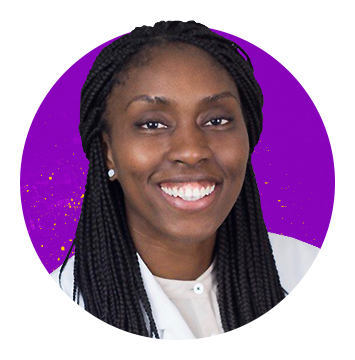 When Dr. Nwadiogo Ejiogu (she/they) learned that Intersex Justice Project would be protesting Lurie Children’s Hospital in Chicago in 2017, she saw an opportunity.
When Dr. Nwadiogo Ejiogu (she/they) learned that Intersex Justice Project would be protesting Lurie Children’s Hospital in Chicago in 2017, she saw an opportunity.
Dr. Ejiogu, at the time in training to become an anesthesiologist, did not want to be complicit in any intersex genital surgeries performed without the individual’s full informed consent. If she were to complete her pediatric anesthesiology rotation at Lurie Children’s, she feared being put in a position of perpetuating injustice and harm.
Soon after she disclosed her concerns, an advisor brought up conscientious objection in medicine, a policy that allows healthcare providers to request to opt out of participating in care that conflicts with their personal or religious values—the same policy commonly used by physicians who opt out of providing abortion care. She submitted her request, and was not assigned to any genital surgeries on intersex children.
Inspired by the work of Intersex Justice Project co-founders Sean Saifa Wall and Pidgeon Pagonis, Dr. Ejiogu decided she could use a required accreditation project for her degree to hold health care professionals accountable. The result was her groundbreaking paper, “Conscientious Objection, Intersex Surgeries, and a Call for Perioperative Justice.”
Dr. Ejiogu’s work reminds others in medicine to center issues of justice and structural oppression, in order to become “better, more humanistic physicians.”
“We can and we must resist medical violence. We can and must work to co-create spaces of healing for communities most impacted by structural inequities.”
Dr. Susan E. Stred, Educator Ambassador
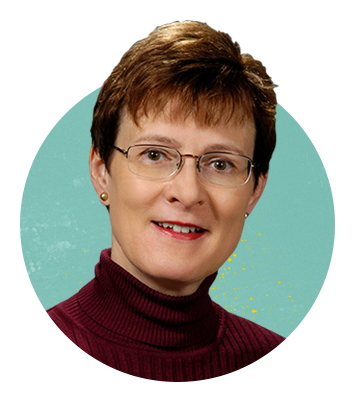 Many intersex people have had chilling childhood experiences with endocrinologists. But Dr. Susan E. Stred (she/her) is a pediatric endocrinologist with deep community ties. While retired from clinical practice, Dr. Stred has been invited to present at conferences hosted by interConnect, the largest U.S. intersex support group, for over 10 years. This is a sterling credential, as invitations are usually only extended to physicians with a known commitment to listening to and learning from intersex people.
Many intersex people have had chilling childhood experiences with endocrinologists. But Dr. Susan E. Stred (she/her) is a pediatric endocrinologist with deep community ties. While retired from clinical practice, Dr. Stred has been invited to present at conferences hosted by interConnect, the largest U.S. intersex support group, for over 10 years. This is a sterling credential, as invitations are usually only extended to physicians with a known commitment to listening to and learning from intersex people.
Dr. Stred remains a critical behind-the-scenes player when it comes to educating others in endocrine professional societies. She brings the knowledge she learned from intersex community members into improving care. Most recently, Dr. Stred is a co-author of the National LGBTQIA+ Health Education Center’s 2020 report, Affirming Primary Care for Intersex People.
Not all intersex people have access to specialists, and most lack options for any competent care. Dr. Stred’s critical work aims to broaden access across the United States to the quality care that all intersex people deserve.
“We providers can best help families raise resilient intersex children by supporting them, not trying to change or erase them.”
Dr. Ellie Kim, Catalyst for Change
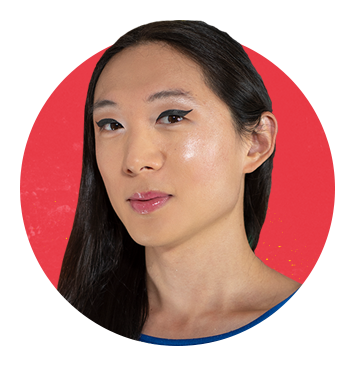 Dr. Ellie Kim (she/her) started a fire with a tweet.
Dr. Ellie Kim (she/her) started a fire with a tweet.
A medical researcher, Dr. Kim leads coordination of studies on transgender youth healthcare at Lurie Children’s Hospital in Chicago. When she noticed Intersex Justice Project’s protests of the hospital’s continuation of genital surgeries on intersex children, she felt mounting pressure to speak up. It was an unfair double standard: how could the hospital be advertising its transgender health clinic as providing patient-centered care and support to transgender children and their families while a different clinic right next door was taking choices away from intersex children?
(1/4) I am a trans woman, physician and employee of @LurieChildrens Hospital. I categorically stand against the medically UNNECESSARY surgeries / interventions being performed on intersex kids by pediatric urologists at this institution and the complicity of my own dept Adol Med
— SuperKnovaMusic (@SuperKnovaMusic) July 14, 2020
Dr. Kim’s message spread, empowering several other Lurie employees to speak up against infant genital surgeries. Her actions rapidly ignited the years-long efforts of Intersex Justice Project, interACT, and other supporters, elevating a media campaign and public call-out: Lurie became the first hospital to heed to public pressure, issue an apology, and pledge to delay surgeries, with notable exceptions.
Advocates are still watching carefully to see if Lurie’s intersex clinic staff will keep their promises. Nonetheless, Dr. Kim and her team’s actions created a historic first that sets a powerful example for the large number of other hospitals that continue to perform infant genital surgeries.
“Medicines, surgeries, and counseling are just a few ways that doctors can heal people. The health of patients is impacted not only by diseases, but also socioeconomics, racism, ableism, bigotry, and social injustices. The best doctors use their knowledge and privilege to advocate for societal/institutional changes to improve the health of patients.”
Dr. Barbara Chubak, Defender of the Hippocratic Oath
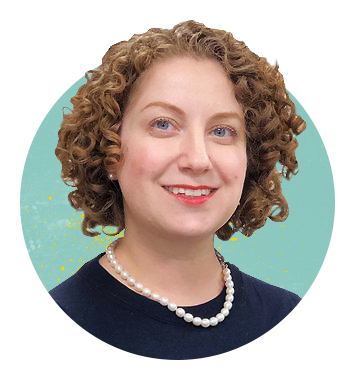 Dr. Barbara Chubak (she/her) is a urologist with a Master’s degree in the history of medicine, with fellowships in both bioethics and sexual medicine under her belt. With her nuanced knowledge of both medical practice and bioethical implications, perhaps it’s not surprising that she was willing to speak out in support of an unpopular position in her profession: “To the extent to which it is safe, the decision [on genital surgery] should go to the child.”
Dr. Barbara Chubak (she/her) is a urologist with a Master’s degree in the history of medicine, with fellowships in both bioethics and sexual medicine under her belt. With her nuanced knowledge of both medical practice and bioethical implications, perhaps it’s not surprising that she was willing to speak out in support of an unpopular position in her profession: “To the extent to which it is safe, the decision [on genital surgery] should go to the child.”
Dr. Chubak appears in VICE’s 2019 video profile on U.S. intersex activists’ fight to have their own choice on genital surgeries. The rarity of urologists willing to listen to intersex voices makes her closing statement incredibly powerful: “We have evidence of harm. We need to step away from that and see if maybe we can do better.”
Dr. Chubak’s plenary presentation at the 2018 GLMA conference critiqued poor adherence and systemic barriers within the popular “multidisciplinary teams” model for intersex care. She testified in favor of California’s SB 201, supporting intersex people’s rights to make their own informed decisions about genital surgeries. Physicians like Dr. Chubak are exactly who you hope to encounter in medicine: those who help you make the most informed decision possible, considering not only surgical outcomes, but full spectrum care and quality of life.
“All medical school curricula already include the basic tools needed to provide competent care for intersex patients—including knowledge of developmental biology and the principles of bioethics. All physicians, regardless of specialization, must be empowered to recognize that we have these tools, and use them.”
Dr. Suegee Tamar-Mattis, Trailblazer for Trauma-Informed Care
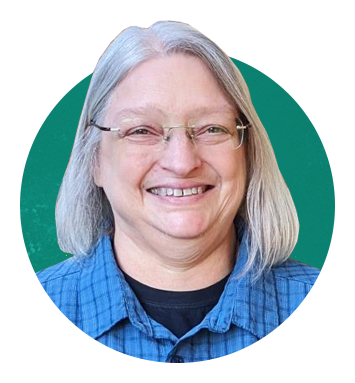 Dr. Suegee Tamar-Mattis is a family physician and intersex person. Dr. Suegee has been working for a safer world for LGBTQIA+ people for decades. This included work with Bo Laurent in the early days of the Intersex movement in 1994. Dr. Suegee’s partner is interACT founder Anne Tamar-Mattis. The pair met while serving as volunteers for the San Francisco Street Patrol, a Guardian Angels-style group providing community protection and self-defense training for LGBTQIA+ people. Since then, Dr. Suegee has been a force for progress in the Bay Area and beyond.
Dr. Suegee Tamar-Mattis is a family physician and intersex person. Dr. Suegee has been working for a safer world for LGBTQIA+ people for decades. This included work with Bo Laurent in the early days of the Intersex movement in 1994. Dr. Suegee’s partner is interACT founder Anne Tamar-Mattis. The pair met while serving as volunteers for the San Francisco Street Patrol, a Guardian Angels-style group providing community protection and self-defense training for LGBTQIA+ people. Since then, Dr. Suegee has been a force for progress in the Bay Area and beyond.
Dr. Suegee founded the Santa Rosa Transgender Clinic in 2008, which is still running today, and currently serves as a physician for Plume, an app-based company providing gender-affirming hormone therapy through telemedicine. Dr. Suegee is a popular presenter on intersex issues, as well as a champion for philosophies of trauma-informed care. Trauma-informed care says that intersex people, as a population, have specific traumas because of medical systems. Care must account for this history.
In 2017, Dr. Suegee worked alongside Human Rights Watch’s Kyle Knight to conduct dozens of interviews with clinicians, intersex people, their families, as well as families that rejected intersex terminology. Their resulting report exposed the depth of the issue of non-consensual intersex genital surgeries in the United States. “I Want to Be Like Nature Made Me” remains one of the most critical documents in support of intersex bodily autonomy. It has been used to gain the support of state, national, and international bodies of government.
Dr. Suegee continues to lead national research as a co-author of the 2020 study of intersex adults’ health outcomes.
“This is a human rights struggle and it can be a hard and difficult path. But we know the arc of history bends towards justice. What you do now will echo into the future and affect the lives of millions of intersex people to come. Never doubt that the lived experience of your life matters, and that you matter!”
Dr. Scott Nass, Leader in Humility
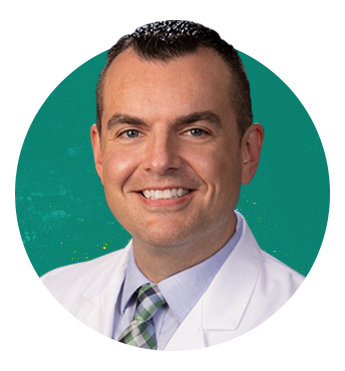 Last—but certainly not least—is Dr. Scott Nass (he/him), who uses his leadership roles at both GLMA: Health Professionals Advancing LGBTQ Equality and the American Academy of Family Physicians to mobilize LGBTQ+ providers for intersex rights. Under Dr. Nass’s leadership, these organizations made tremendous strides in supporting policies urging the end of unnecessary genital surgeries on intersex children. This crucial advocacy opened the door for many others in medicine to follow suit.
Last—but certainly not least—is Dr. Scott Nass (he/him), who uses his leadership roles at both GLMA: Health Professionals Advancing LGBTQ Equality and the American Academy of Family Physicians to mobilize LGBTQ+ providers for intersex rights. Under Dr. Nass’s leadership, these organizations made tremendous strides in supporting policies urging the end of unnecessary genital surgeries on intersex children. This crucial advocacy opened the door for many others in medicine to follow suit.
Dr. Nass traveled to testify and educate lawmakers in favor of California’s SB 201, a bill that would have affirmed GLMA’s position on infant genital surgeries. He remains a fierce and outspoken advocate for gender-affirming healthcare, evidenced by his op-ed in the Nation opposing restrictions on health care for intersex and transgender youth.
Not all LGB physicians fight for transgender and intersex issues the way Dr. Nass does. His solidarity sets an example we hope to see more of. He treats his position as a physician with humility, knowing that his patients must guide the way.
“I wish we were taught in medical school that people can be trusted as experts on their own bodies. Sure, my credentials allow me to prescribe medications and help my patients access other services, but it’s important to recognize that patients’ lived experiences and life goals are more important than whatever scientific expertise I bring to the table.”
We are eternally grateful to our physician allies. If you’re a physician interested in advocating for intersex bodily autonomy, please contact us at [email protected].
This piece is part of the Intersex Awareness Day 2020 series on intersex health and resilience.




